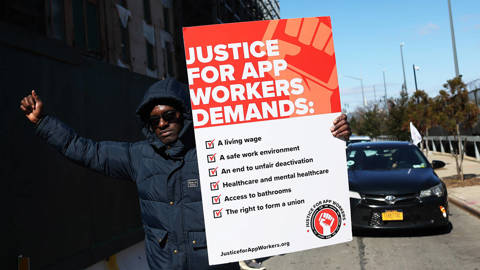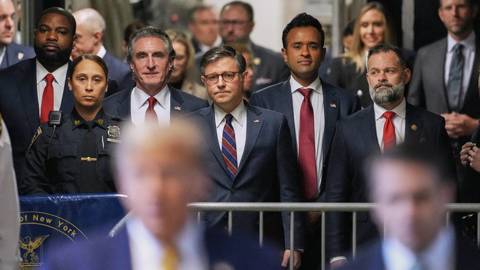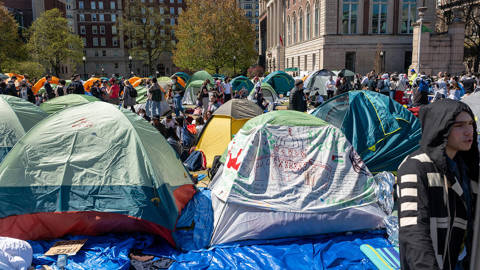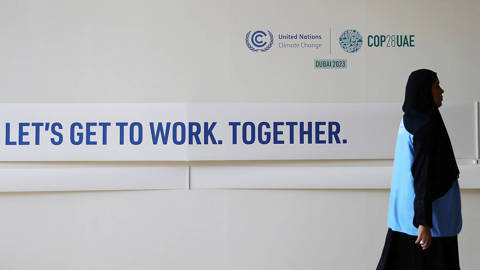As important as decarbonization commitments from national governments are, it is city mayors who are on the front lines in the global struggle against climate change. But with the pandemic having decimated municipal budgets, cities will need more support to continue the pioneering work they have already begun.
BRUSSELS – At this year’s United Nations Climate Change Conference (COP26) in Glasgow, much of the attention will be on what national governments can do to cut emissions more quickly and uphold a previous commitment to provide $100 billion annually in climate finance for low- and middle-income countries.
These are critical issues. But there is another group of leaders whose actions are also essential to tackling climate change, and who together are showing what is possible: the world’s mayors. In fact, pledging more support for, and partnerships with, the cities pursuing climate adaptation and mitigation is one of the most important steps that national governments can take at COP26.
As home to a growing majority of the world’s population, cities are responsible for around three-quarters of global energy use and 70% of carbon dioxide emissions. Fortunately, mayors have considerable authority to address the biggest sources of those emissions, not least transportation and building energy use.
Mayors also have powerful incentives to act. Toxic air pollution from burning fossil fuels is often concentrated in cities, causing illness and premature death; and local governments are often the first line of defense against natural disasters. Moreover, interventions like building public transport, creating more parks and green spaces, improving buildings’ energy efficiency, and replacing fossil fuels with clean power can make an immediate and measurable difference in the lives of city inhabitants.
Mayors and city leaders have proven that they are willing and able to lead. Milan, Italy, is converting its entire public transport fleet to electric power. Pittsburgh, Pennsylvania, is enacting a plan to run on 100% renewable energy. Accra, Ghana, is on track to cut emissions by more than 25% this decade, even as its population continues to grow. Lima, Peru, will plant two million trees by 2022. Seoul, South Korea, is providing low-interest loans for zero-energy buildings. Quezon City, Philippines, responded to the pandemic with an emergency employment program that puts people to work protecting and restoring the environment. And Putrajaya, Malaysia, is switching to solar energy as the default option for all official buildings.
But cities can’t save the planet alone. Now more than ever, they need support. The economic devastation of the pandemic has hit cities particularly hard, decimating municipal budgets. City leaders know that fighting climate change and driving a green economic recovery go hand in hand, because the same measures that reduce CO2 emissions also spur growth, generate jobs, and create conditions that attract new residents and businesses. The more we do to support cities, the faster our progress will be against both the climate crisis and COVID-19.
Since 2017, we have been working together through the Global Covenant of Mayors for Climate & Energy, an alliance that now includes more than 11,000 cities – collectively home to more than one billion people. Each of these cities has made a bold commitment to cut emissions and adapt to climate change, and, through the alliance, they are sharing strategies and solutions. While international climate negotiations are often hindered by conflicts about who should be doing more, cities are working together with a spirit of common purpose and shared destiny. They are collaborating because they understand the benefits of collective action.
For its part, the Global Covenant enables cities to access resources – including technical assistance to identify opportunities and design innovative projects, as well as funding from a wide range of partners – to do more, faster. The alliance also gives cities a way to speak together as one, advocating policies that can help them aim even higher and continue leading the way on climate change.
In recognition of the work cities have been leading, the Global Covenant has won the second annual Gulbenkian Prize for Humanity. The prize money will go to provide direct support to help acutely vulnerable African cities respond to the climate crisis in ways that also support their economic recoveries from the pandemic. We will share lessons learned through the global network, encouraging cities across Africa and around the world to take similar steps.
National governments have strong reasons to help their cities in this respect. Cities, after all, generate three-quarters of global GDP. They are engines of economic mobility, industry, and technological innovation. Strong and thriving cities make for strong and thriving countries – and smart municipal climate action helps all city residents live better, healthier lives.
As COP26 begins, cities collectively offer the best reason for hope in the battle against climate change. They are ready to do more, and the Global Covenant, the European Commission, and Bloomberg Philanthropies stand ready to help them. We will continue to cultivate widespread public support and engagement, unlock new funding, and offer tools to help cities deliver bolder and even more ambitious climate solutions.
But Global Covenant cities and their one billion inhabitants are also calling out for more support from national governments. When one billion people speak with one voice, leaders should listen. COP26 is a chance for world leaders to show that they are.











BRUSSELS – At this year’s United Nations Climate Change Conference (COP26) in Glasgow, much of the attention will be on what national governments can do to cut emissions more quickly and uphold a previous commitment to provide $100 billion annually in climate finance for low- and middle-income countries.
These are critical issues. But there is another group of leaders whose actions are also essential to tackling climate change, and who together are showing what is possible: the world’s mayors. In fact, pledging more support for, and partnerships with, the cities pursuing climate adaptation and mitigation is one of the most important steps that national governments can take at COP26.
As home to a growing majority of the world’s population, cities are responsible for around three-quarters of global energy use and 70% of carbon dioxide emissions. Fortunately, mayors have considerable authority to address the biggest sources of those emissions, not least transportation and building energy use.
Mayors also have powerful incentives to act. Toxic air pollution from burning fossil fuels is often concentrated in cities, causing illness and premature death; and local governments are often the first line of defense against natural disasters. Moreover, interventions like building public transport, creating more parks and green spaces, improving buildings’ energy efficiency, and replacing fossil fuels with clean power can make an immediate and measurable difference in the lives of city inhabitants.
Mayors and city leaders have proven that they are willing and able to lead. Milan, Italy, is converting its entire public transport fleet to electric power. Pittsburgh, Pennsylvania, is enacting a plan to run on 100% renewable energy. Accra, Ghana, is on track to cut emissions by more than 25% this decade, even as its population continues to grow. Lima, Peru, will plant two million trees by 2022. Seoul, South Korea, is providing low-interest loans for zero-energy buildings. Quezon City, Philippines, responded to the pandemic with an emergency employment program that puts people to work protecting and restoring the environment. And Putrajaya, Malaysia, is switching to solar energy as the default option for all official buildings.
But cities can’t save the planet alone. Now more than ever, they need support. The economic devastation of the pandemic has hit cities particularly hard, decimating municipal budgets. City leaders know that fighting climate change and driving a green economic recovery go hand in hand, because the same measures that reduce CO2 emissions also spur growth, generate jobs, and create conditions that attract new residents and businesses. The more we do to support cities, the faster our progress will be against both the climate crisis and COVID-19.
SPRING SALE: Save 40% on all new Digital or Digital Plus subscriptions
Subscribe now to gain greater access to Project Syndicate – including every commentary and our entire On Point suite of subscriber-exclusive content – starting at just $49.99.
Subscribe Now
Since 2017, we have been working together through the Global Covenant of Mayors for Climate & Energy, an alliance that now includes more than 11,000 cities – collectively home to more than one billion people. Each of these cities has made a bold commitment to cut emissions and adapt to climate change, and, through the alliance, they are sharing strategies and solutions. While international climate negotiations are often hindered by conflicts about who should be doing more, cities are working together with a spirit of common purpose and shared destiny. They are collaborating because they understand the benefits of collective action.
For its part, the Global Covenant enables cities to access resources – including technical assistance to identify opportunities and design innovative projects, as well as funding from a wide range of partners – to do more, faster. The alliance also gives cities a way to speak together as one, advocating policies that can help them aim even higher and continue leading the way on climate change.
In recognition of the work cities have been leading, the Global Covenant has won the second annual Gulbenkian Prize for Humanity. The prize money will go to provide direct support to help acutely vulnerable African cities respond to the climate crisis in ways that also support their economic recoveries from the pandemic. We will share lessons learned through the global network, encouraging cities across Africa and around the world to take similar steps.
National governments have strong reasons to help their cities in this respect. Cities, after all, generate three-quarters of global GDP. They are engines of economic mobility, industry, and technological innovation. Strong and thriving cities make for strong and thriving countries – and smart municipal climate action helps all city residents live better, healthier lives.
As COP26 begins, cities collectively offer the best reason for hope in the battle against climate change. They are ready to do more, and the Global Covenant, the European Commission, and Bloomberg Philanthropies stand ready to help them. We will continue to cultivate widespread public support and engagement, unlock new funding, and offer tools to help cities deliver bolder and even more ambitious climate solutions.
But Global Covenant cities and their one billion inhabitants are also calling out for more support from national governments. When one billion people speak with one voice, leaders should listen. COP26 is a chance for world leaders to show that they are.